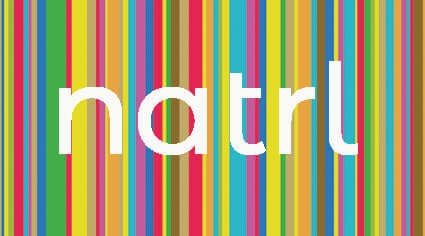In July 2024, the natural deodorant space saw a seismic shift: Wild, the UK’s fastest-growing eco-conscious deodorant brand, was officially acquired by global beauty conglomerate Unilever.
For a brand that built its reputation on refillable packaging, natural ingredients, and a distinctly independent, sustainability-first ethos, the takeover has raised eyebrows—and important questions.
At Natrl Skincare, we believe in transparency, small-batch production, and ingredient integrity. So let’s take a closer look at what this acquisition means for natural beauty lovers, and whether Wild can still be called a “clean” brand under corporate ownership.
🌱 From Start-Up to Superbrand
Founded in 2019, Wild positioned itself as a plastic-free, refillable deodorant company offering aluminium-free formulas and bold natural scents. Its quick rise to fame, backed by influencer campaigns and a booming subscription model, made it a darling of the sustainable personal care scene.
But with Unilever—a multinational giant owning brands like Dove, Lynx, and Sure—now at the helm, Wild’s indie identity faces a critical crossroads.
🤔 Can a Natural Brand Stay Natural Under Big Ownership?
Unilever’s acquisition was pitched as a win-win: Wild gains access to global distribution, and Unilever gains a foothold in the fast-growing clean beauty space. But here’s the concern:
• Ingredient Standards: While Wild has promised to retain its formula, larger corporations often tweak formulations over time for scalability, cost-efficiency, or regulatory reasons. Will Wild’s ingredient list stay truly natural and non-toxic?
• Sustainable Packaging: Wild’s hallmark has been its sleek, refillable aluminium case with compostable inserts. But maintaining sustainable packaging at mass scale is complex and often compromised for logistics. Will the same level of eco-integrity remain?
• Brand Values: Independent beauty brands often hold stronger environmental and ethical positions. Under a multinational parent, there’s pressure to prioritise profit, not principle.
🧴 What This Means for Natural Skincare as a Whole
This isn’t the first time Big Beauty has snapped up small ethical brands. Think of The Body Shop (L’Oréal, then Natura), or Schmidt’s Naturals (Unilever again). Often, the initial charm and transparency get lost in corporate layers.
For truly natural and eco-conscious shoppers, brand independence still matters. Buying from small, founder-led businesses ensures:
✅ Transparent, natural ingredients
✅ Sustainable, small-batch production
✅ No dilution of ethics for market share
✅ A genuine commitment to people and planet—not just PR
💚 Why Natrl Skincare Remains Proudly Independent
At Natrl Skincare, we remain committed to staying small, intentional, and truly natural. Our formulations are cold-pressed, nut-free, preservative-free, and crafted in-house—not mass-produced in a multinational supply chain.
We’re here for the people who want to know exactly what’s going on their skin—and where it came from.
What is the take away from this acquisition?
Wild’s sale to Unilever shows just how valuable the natural beauty space has become. But it also highlights the tension between scale and sustainability.
https://www.youtube.com/watch?v=sflU9XIckC4
Many market commentators and users of natural products have their misgivings, with some publicly stating that they will no longer use Wild deodorant any longer, see below:
https://emmareed.net/a-green-takeover-why-i-will-no-longer-be-supporting-wild/
We celebrate Wild’s success, but we also believe the future of truly natural skincare lies in supporting independent brands that stay rooted in transparency, ethics, and ingredient integrity—no matter how big the industry grows.
#unilever #wilddeodorant #sustainability #credibility #naturaldeodorant


 Whatsapp us!
Whatsapp us!